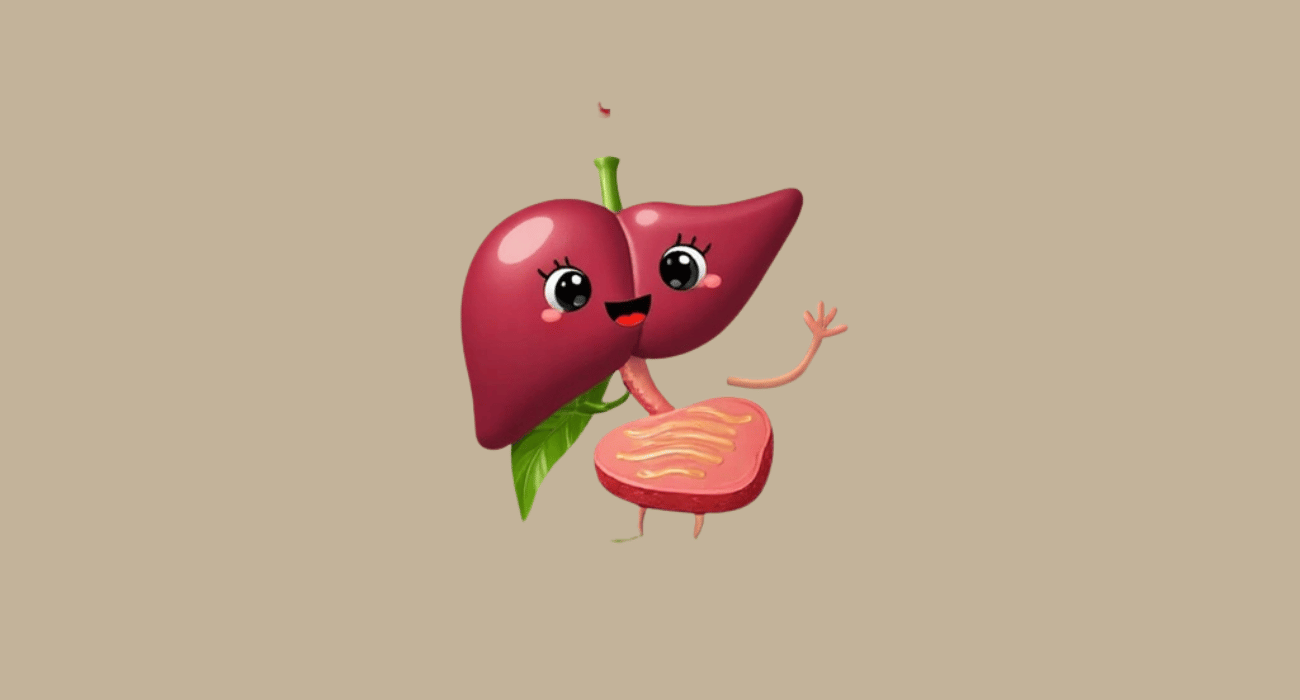How the Liver Warns Us That It’s Overworked: Key Signs to Watch For!
Our liver, a vital organ, plays a crucial role in detoxifying our body, aiding digestion, and regulating metabolism.
However, many of us overlook its whispers of distress until they become cries for help.
Understanding the liver warning signs can empower us to take action before it’s too late, ensuring our overall health and well-being.
In this article, we’ll explore the various indications that suggest your liver is overworked, along with tips to maintain its health and vitality.
1. Fatigue and Exhaustion
One of the first signs that your liver is overworked is consistent fatigue.
If you find yourself feeling tired, even after a full night’s sleep, this could be your body signaling that your liver is struggling to perform its essential functions.
The liver is responsible for metabolizing nutrients and filtering toxins; when it’s overwhelmed, your energy levels can plummet.
Consider incorporating liver-friendly foods like leafy greens, beets, and avocados into your diet. These foods help to rejuvenate your liver and restore your energy levels.
Staying hydrated is equally important; aim for at least 8 glasses of water daily to support liver detoxification processes.
2. Unexplained Weight Gain

Weight gain can be a perplexing issue, especially when it seems unrelated to dietary changes or lifestyle habits.
An overworked liver often struggles to metabolize fats efficiently, leading to unexpected weight accumulation.
If you’ve noticed an increase in your waistline despite a healthy lifestyle, it might be time to reassess your liver health.
Incorporating foods rich in omega-3 fatty acids, such as fatty fish and walnuts, can help support liver function by reducing inflammation and improving fat metabolism.
Additionally, regular physical activity and mindful eating can greatly assist in managing weight effectively.
3. Skin Changes: Yellowing and Rashes

Your skin can often reflect what’s happening inside your body, and changes can indicate liver trouble.
Jaundice, which causes a yellowing of the skin and eyes, occurs when the liver can’t process bilirubin properly.
Additionally, unexplained rashes or itchy skin can signal liver dysfunction.
To promote liver health, consider incorporating foods high in antioxidants like berries and citrus fruits, which can help combat oxidative stress.
Regular exfoliation and hydration can also enhance skin health, making it important to invest in quality skincare products that nourish and protect your skin.
4. Digestive Issues: Bloating and Gas

An overworked liver can disrupt your digestive system, leading to uncomfortable symptoms like bloating and excessive gas.
When the liver struggles to produce bile, which is essential for fat digestion, it can result in these unpleasant digestive disturbances.
To alleviate these symptoms, consider adding more fiber-rich foods such as whole grains, legumes, and fresh fruits to your diet.
Probiotics can also play a vital role in enhancing gut health, so incorporating fermented foods like yogurt or kimchi can be beneficial.
Remember to chew your food thoroughly to aid digestion and reduce the workload on your liver.
5. Bad Breath and Unpleasant Body Odor
If you find yourself battling persistent bad breath or unusual body odor, it could be a result of liver issues.
The liver is crucial for detoxifying the body, and when it’s overworked, toxins can accumulate and be expelled through breath and sweat, leading to unpleasant smells.
To combat this, focus on hydration and incorporate detoxifying foods like garlic, which can help cleanse the liver.
Regular exercise can also promote detoxification through sweat, helping to keep your body odor in check.
Additionally, practicing good oral hygiene is essential to address bad breath.
6. Mood Swings and Irritability
Your liver health can directly influence your mood and mental well-being.
An overworked liver can lead to imbalances in hormones and neurotransmitters, resulting in mood swings and increased irritability.
If you find yourself feeling more anxious or irritable than usual, it might be time to evaluate your liver health.
Incorporating stress-reducing practices like yoga or meditation can significantly benefit both your liver and mood.
Additionally, consider consuming foods rich in omega-3 fatty acids, which can help regulate mood and support liver function.
7. Changes in Appetite

If you notice unexplained changes in your appetite, it may be a sign that your liver is overworked.
A struggling liver can lead to a decreased desire for food, making it difficult to maintain a balanced diet.
It’s essential to pay attention to these signals and understand that your body may be in need of support.
To stimulate your appetite, consider incorporating smaller, more frequent meals consisting of liver-friendly foods like lean proteins, whole grains, and colorful vegetables.
Adding herbs and spices can also enhance flavors and make meals more appealing.
8. Dark Urine and Pale Stool
Changes in urine and stool color can be telling signs of liver health.
Dark urine may indicate dehydration or liver dysfunction, while pale stool can signify a lack of bile production.
If you observe these changes, it’s crucial to assess your liver health and make necessary dietary adjustments.
Increasing your fluid intake and consuming foods that support bile production, like beets and artichokes, can be beneficial.
Regular check-ups with your healthcare provider can also help monitor your liver function effectively.
9. Frequent Headaches
If you’re experiencing frequent headaches, it could be a sign of an overworked liver.
The liver’s inability to filter out toxins effectively may lead to increased pressure in the body, manifesting as headaches.
To combat this, prioritize hydration and consider incorporating foods rich in magnesium, such as leafy greens and nuts, which can help alleviate tension.
Additionally, regular exercise and stress-relief techniques like deep breathing can aid in headache prevention.
Recognizing and addressing these warning signs early can help maintain both liver and overall health.
10. Nausea and Vomiting

Nausea and vomiting can be uncomfortable symptoms that may indicate your liver is overburdened.
An overwhelmed liver struggles to process toxins, which can lead to gastrointestinal distress.
If you frequently experience these symptoms, it is crucial to evaluate your dietary choices and lifestyle.
Consuming ginger, known for its anti-nausea properties, can provide relief while supporting liver health.
Ensuring a balanced diet filled with nutrient-dense foods can also prevent these uncomfortable episodes.
11. Elevated Cholesterol Levels

Elevated cholesterol levels often signal that the liver is struggling to manage fat metabolism.
An overworked liver can lead to an imbalance in cholesterol production, impacting overall health.
To promote liver health and manage cholesterol, focus on incorporating foods high in fiber, such as oats and legumes, which can help lower cholesterol levels.
Regular physical activity is also essential, as it aids in maintaining a healthy weight and improving metabolic processes.
Regular check-ups with your healthcare provider can help monitor your cholesterol levels and liver function.
12. Changes in Sleep Patterns

Changes in sleep patterns can also point to liver dysfunction.
An overworked liver can disrupt the body’s natural circadian rhythm, leading to insomnia or restless sleep.
Prioritizing liver health can help restore balance and improve sleep quality.
Consider incorporating calming practices like meditation or herbal teas known for their sleep-enhancing properties, such as chamomile or valerian root, into your nightly routine.
Maintaining a consistent sleep schedule and creating a restful environment can also facilitate better sleep.
13. Increased Sensitivity to Medications
If you find yourself more sensitive to medications, it might indicate that your liver is not functioning optimally.
The liver plays a crucial role in metabolizing drugs and filtering out toxins, and when it’s overworked, it may struggle to process medications effectively.
If you experience heightened side effects or prolonged effects from medications, it’s essential to consult with your healthcare provider.
Supporting your liver with a balanced, nutrient-rich diet can help improve its function, along with regular detoxifying practices.
Always discuss any concerns about medication sensitivity with your doctor to adjust dosages as needed.
14. Excessive Sweating
Excessive sweating can be a sign that your liver is working overtime to detoxify your body.
When the liver is overwhelmed, it may lead to an imbalance in your body’s temperature regulation, causing you to sweat more than usual.
To support your liver, consider incorporating cooling foods like cucumber and mint into your diet, which can help regulate body temperature.
Staying hydrated is crucial, as it allows your body to effectively flush out toxins through sweat.
Regular exercise can also help balance body temperature and improve overall liver function.
15. Frequent Infections

If you notice an increase in infections, it could be a sign that your liver is compromised.
The liver plays a vital role in immune function, and an overworked liver may weaken your immune response, making you more susceptible to illnesses.
To bolster your immune system and support liver health, focus on consuming foods rich in vitamins C and D, such as citrus fruits and fortified dairy products.
Regular exercise and adequate sleep are also essential for maintaining a strong immune system.
Consulting with a healthcare professional can help identify underlying issues and provide guidance on liver health.
Conclusion
Understanding the key liver warning signs is essential for maintaining your overall health.
By recognizing these indicators and implementing liver health tips, you can support this vital organ and enhance your well-being.
Remember, taking proactive steps today can lead to a healthier tomorrow, so listen to your body and prioritize your liver health.



